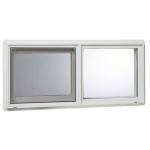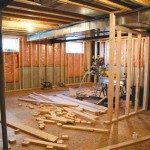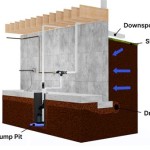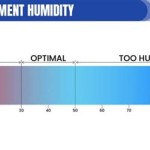Basement Ceiling Insulation R Value: A Comprehensive Guide
Insulating your basement ceiling is crucial for maintaining a comfortable and energy-efficient home. Basement ceilings are particularly prone to heat loss, as they are often exposed to cold exterior air. Insulation acts as a barrier, reducing heat transfer and improving temperature regulation within your living space.
Understanding R-Value
R-value is a measure of an insulation's thermal resistance. The higher the R-value, the better the insulation's ability to resist heat flow. For basement ceilings, an R-value of at least R-30 is recommended to ensure adequate insulation.
Types of Insulation
There are various types of insulation available for basement ceilings, each with its own R-value and characteristics:
- Fiberglass batts: Fiberglass batts are commonly used and offer a good balance of R-value and cost-effectiveness.
- Cellulose: Cellulose insulation is made from recycled paper and provides excellent sound absorption.
- Spray foam: Spray foam is a high-performance insulation that conforms to any shape and cavity.
- Rigid foam boards: Rigid foam boards are typically used for insulating basement walls and can also be applied to ceilings.
Installing Basement Ceiling Insulation
Installing insulation in your basement ceiling is a relatively straightforward process:
- Prepare the surface: Remove old insulation and any obstructions from the ceiling joists.
- Install insulation: Staple or glue insulation batts between the ceiling joists. If using rigid foam boards, secure them with screws.
- Cover the insulation: Cover the insulation with a vapor barrier to prevent moisture penetration.
Benefits of Basement Ceiling Insulation
Properly insulating your basement ceiling offers numerous benefits:
- Improved comfort: Insulation helps regulate temperature, keeping your living space warmer in winter and cooler in summer.
- Energy savings: Reduced heat transfer leads to lower heating and cooling costs.
- Reduced noise: Insulation absorbs sound, minimizing noise transmission from the basement.
- Enhanced structural integrity: Insulation helps prevent moisture accumulation, which can damage ceiling joists and other structural elements.
Factors to Consider
When selecting insulation for your basement ceiling, consider the following factors:
- R-value: Ensure the insulation has an adequate R-value for your climate zone.
- Budget: Different types of insulation vary in cost, so choose an option that fits your budget.
- Installation complexity: Some insulation types require more specialized installation techniques.
- Moisture resistance: Opt for insulation that resists moisture, as basements tend to have higher humidity levels.
Conclusion
Insulating your basement ceiling is an essential investment in your home's comfort, energy efficiency, and structural integrity. By choosing the right insulation and following proper installation techniques, you can reap the benefits of a well-insulated basement ceiling for years to come.

Recommended Insulation Levels For Optimum R Value

All About Insulation R Values The Home

Insulation R Value What Is It Knauf

New York Recommended Home Insulation R Values Zone 4

Envelope Pa Energy Code

Insulation Levels For Cold Hot And Moderate Climates

All About Insulation R Values The Home

How Much Insulation Does My Home Need R Value

Envelope Pa Energy Code

How Much Insulation Does Your Home Need Guide








